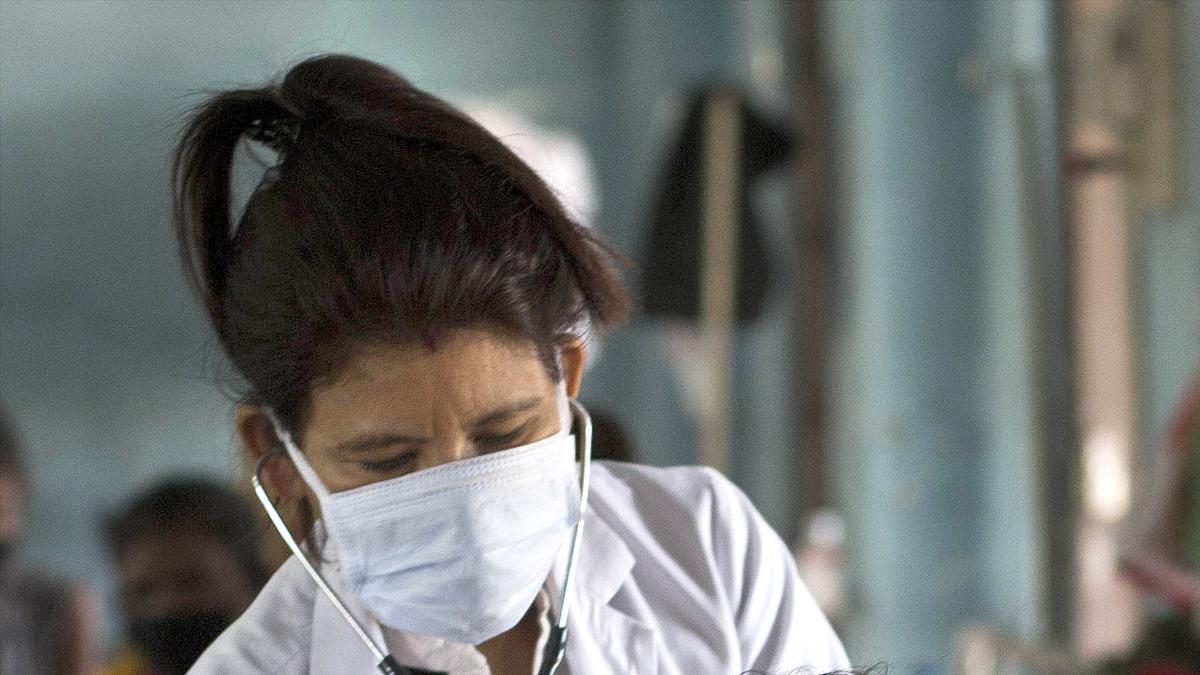
The syndemic of tuberculosis and mental health
The Hindu
TB and mental health are co-epidemics in India, with stigma and treatment challenges impacting individuals' well-being.
In 2022, 2.42 million Indians were diagnosed with tuberculosis. A silent crisis, TB is associated with a deep stigma, and those affected have stories of being ostracised and mistreated by families, communities, and even the health system. All of this has a significant impact on the mental health of those fighting TB. In truth, TB and mental illness are co-epidemics.
Evidence suggests that people with mental health issues are more likely to develop TB. Also, TB-related stigma adversely impacts a TB-affected individual’s mental health from diagnosis through treatment and its side effects. TB-related mental health issues also significantly diminish an individual’s quality of life.
Why does this happen? TB is stigmatised due to the fear of contagiousness, association of the disease with poverty, and unhealthy behaviour. This leads to both social and self-stigma, which leads to mental health challenges. These mental health issues lead to general feelings of hopelessness, despair, and impaired decision-making skills, which can also lead the individual to lose hope in recovery, not be able to follow medical advice, discontinue treatment, etc.
TB treatment is long and comes with extreme side effects. This leads to several mental health issues that affect the individual and sometimes even families who are providing care. Those affected see changes in physical appearance, extreme side effects from rashes to psychotic episodes, and loss of self-confidence. It comes as no surprise that the mental toll often parallels the physical damage. Up to 84% of patients with TB have concomitant depression.
It’s important for policy and programmes to recognise that the association of TB and poor mental health is bidirectional. While the TB stigma, prolonged treatment, and adverse side effects can have deleterious effects on an individual’s mental health, poor mental health can also predispose a person to TB. A weakened immune system known to be associated with mental stress and depression possibly contributes to vulnerability. In addition, addiction to tobacco, alcohol, and narcotics, all associated with mental health disorders, has been associated with a high incidence of TB, suggesting a causal association. The global burden of disease study estimates that in 2017, 197·3 million (95% UI 178·4–216·4) Indians had mental health disorders, making such persons a sizable TB high-risk population.
Standards of care in TB now mandate screening for diabetes and HIV infection among those diagnosed. Shouldn’t we also screen for depression and other mental health issues? In a global survey of national TB programmes (NTPs) of 26 countries, it was found that only two NTPs included routine screening for any mental disorder, four assessed alcohol or drug use, and five had standard protocols for the co-management of disorders.
India needs to lead the way with a comprehensive framework and policy on TB and mental health. This should incorporate mental health screening as part of TB care. Studies have used simple questionnaires to screen all patients with TB at the time of diagnosis and these have yielded a good sensitivity. These questionnaires can be self-administered, or administered by community health workers or DOTS providers. Offering psychological support during treatment should also be a standard of care, with the knowledge that treatment can be arduous and stressful.

The Karnataka government has drafted a comprehensive master plan for the integrated development of Kukke Subrahmanya temple, the State’s highest revenue-generating temple managed by the Hindu Religious Institutions and Charitable Endowments Department. The redevelopment initiative is estimated to cost around ₹254 crore and aims to enhance infrastructure and facilities for devotees.












